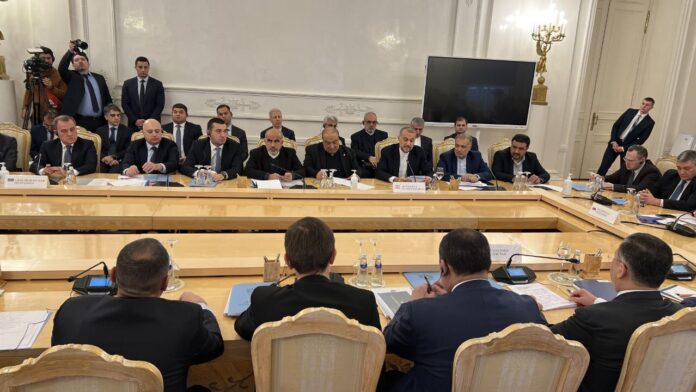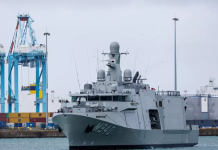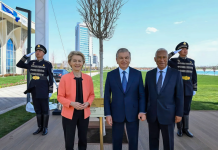TEHRAN: Iranian Foreign Minister Hossein Amirabdollahian has used his speech at the annual summit of foreign ministers of the Caspian Sea littoral states to call for the prosecution of Israeli leaders for war crimes in the besieged Gaza Strip, as well as sanctions on Israeli goods.
“The war criminals of the Zionist regime must be prosecuted in the international court,” Amirabdollahian declared on Tuesday at the summit in Moscow.
The Iranian foreign minister also called for a halt to exports of goods to the Israeli-occupied territories.
“Exports of goods to the occupied territories of Palestine should be halted, and products manufactured in Israel should be sanctioned. This, at the very least, is a gesture of solidarity for the people of Gaza,” he stated.
The top diplomat asserted that imposing sanctions on the Israeli regime was the least measure of solidarity that can be taken for the people of Gaza.
Elsewhere in his remarks, Amirabdollahian proposed the establishment of a secretariat or organization to oversee all areas of cooperation in the Caspian Sea region.
“To transform the Caspian Sea into a true symbol of friendship, progress, and development, we need to strengthen collective interaction and cooperation as much as possible,” he said.
Referring to the Caspian Sea as a common heritage and a source of prosperity for over 270 million people, Amirabdollahian stressed the importance of environmental preservation and resource conservation for future generations.
He cautioned against the exploitation of Caspian Sea resources without taking into account the interests of other coastal nations, emphasizing that all decisions regarding Caspian Sea matters must be made through consensus.
Referring to the postponing of the third Caspian Economic Forum which was due to be held in Tehran with the participation of prime ministers of the littoral states, the Iranian foreign minister said that we are planning to propose a new date for the forum.
He noted that exercising sovereignty, setting the governing rules and exclusive and collective jurisdiction in these areas require the drawing up of the baselines which he said are the basis for determining the accurate scope of internal and territorial waters, fishing zones, and the shared water area in the Caspian Sea.
Although a working group of the high-ranking officials have had six rounds of negotiations so far to finalize an agreement on determining the direct baselines in the Caspian Sea, the course of the talks is slow and not satisfactory, Amirabdollahian said.
He expressed hope that the seventh meeting of the working group will be held in Baku as soon as possible, proposing for the working group to convene at least once every three months to draft the agreement at the earliest.
The foreign minister regretted that the continuous backing away of the water in the Caspian Sea in recent years has had negative effects on port and shipping facilities, the ecosystem, aquatic life, and the unique wetlands of the Caspian Sea, calling on the working group to cooperate with the related bodies in the five littoral countries to address the issue with a scientific and operational approach.






